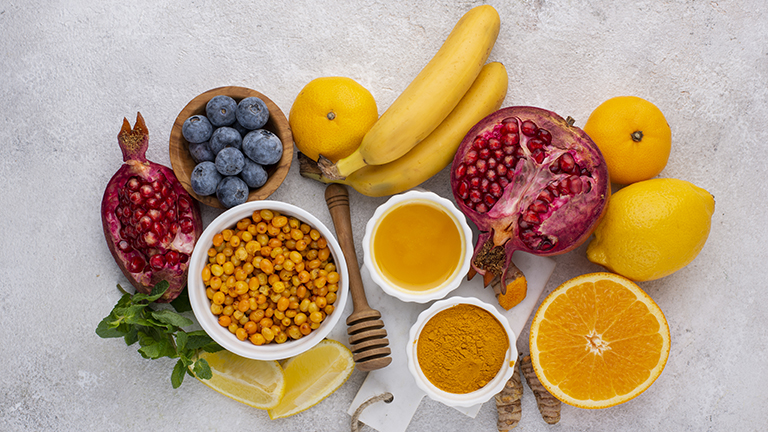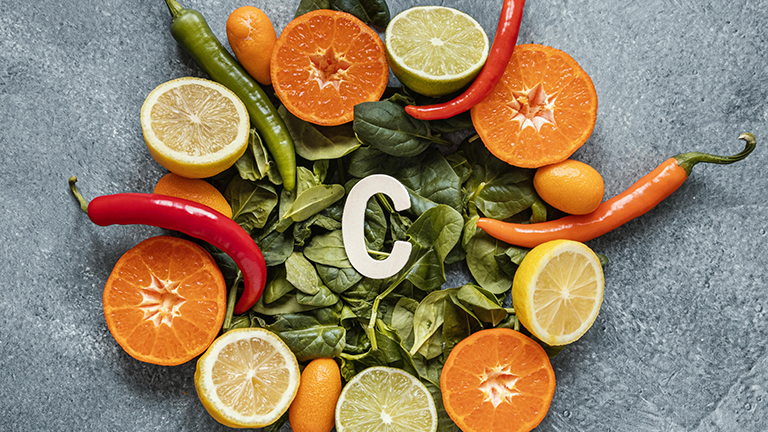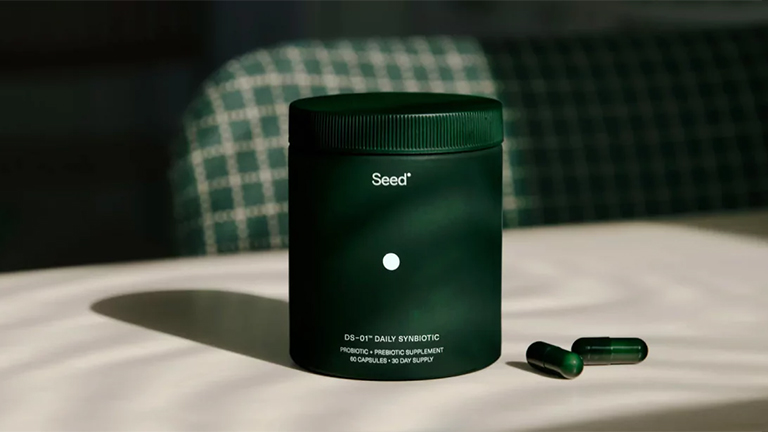Vitamin C Foods for Immunity: Vitamin C, also known as ascorbic acid, is one of the most essential nutrients for human health, particularly when it comes to strengthening immunity. Unlike some nutrients that the body can produce on its own, vitamin C must be obtained from diet or supplementation. It is water-soluble, meaning it dissolves in water and is not stored in large quantities within the body. This is why a steady daily intake is critical for maintaining strong immunity and overall wellness.
Vitamin C plays multiple roles in the body. It supports the formation of collagen, helps heal wounds, enhances the absorption of iron from plant-based foods, and acts as a powerful antioxidant that fights free radicals. Most importantly, it contributes to the body’s defence system by boosting immune cell activity and helping the body respond to infections more effectively.
Globally, there has been an increasing awareness of the role of nutrition in immunity, particularly in light of recent health challenges. Populations in the USA, UK, Canada, and around the world are seeking natural ways to strengthen their immune systems. Vitamin C rich foods stand out as some of the best, most accessible, and affordable solutions.
Top Vitamin C Rich Foods for Immunity Boost
The best way to maintain sufficient vitamin C levels is through food rather than supplements, unless recommended by a healthcare provider. Whole foods contain not only vitamin C but also other vitamins, minerals, and phytochemicals that work synergistically to promote health.
The list of vitamin C rich foods is extensive, covering fruits, vegetables, herbs, and even exotic superfoods. Citrus fruits are often celebrated, but many non-citrus foods actually surpass them in vitamin C content. Guavas, bell peppers, and kiwis, for example, are considered supercharged sources that can easily meet or exceed daily requirements.
Incorporating a variety of these foods ensures balanced nutrition and maximum benefit. Eating vitamin C foods daily also helps in maintaining consistent immunity, as the vitamin is used quickly by the body and cannot be stored in high amounts.
Best Fruits High in Vitamin C to Strengthen Immunity
Oranges and Citrus Fruits
Oranges, lemons, grapefruits, and limes are the most recognised sources of vitamin C. An average orange provides about 70 mg of vitamin C, which is nearly the full recommended daily intake for women. Citrus fruits are also hydrating and contain bioflavonoids that enhance the absorption of vitamin C, making them a valuable choice for immunity.
Kiwi Fruit
Kiwis are small but nutrient-dense fruits that contain more vitamin C per gram than oranges. A single kiwi provides over 70 mg of vitamin C, as well as fiber, potassium, and vitamin K. Research shows that kiwis may help reduce the severity and duration of respiratory infections due to their high antioxidant content.
Strawberries
Strawberries are another fruit loaded with vitamin C. A cup of strawberries contains more than 85 mg, which supports collagen formation and boosts immune defenses. They are also rich in anthocyanins, which have anti-inflammatory properties.
Guavas
Guavas are among the richest natural sources of vitamin C, with a single fruit providing over 200 mg. In tropical regions, guavas are widely consumed for their immune-boosting properties. Studies show that guava intake helps lower blood sugar levels, support skin health, and strengthen natural defense mechanisms.
Papayas
Papayas deliver over 90 mg of vitamin C per cup and also provide digestive enzymes like papain, which support gut health. Since a healthy gut is linked to strong immunity, papayas serve a dual function as an immunity-boosting superfruit.
Pineapples
Pineapples contain vitamin C and bromelain, an enzyme that supports respiratory health and reduces inflammation. This combination makes pineapples particularly beneficial during cold and flu season.
Vegetables Rich in Vitamin C for Daily Nutrition
Bell Peppers
Red bell peppers are exceptionally high in vitamin C, containing almost three times as much as an orange. A single cup of raw red bell pepper delivers over 120 mg of vitamin C. They are versatile and can be eaten raw, roasted, or sautéed.
Broccoli
Broccoli is a cruciferous vegetable that provides 80 mg of vitamin C per cup. It is also rich in sulforaphane, a compound that supports detoxification and strengthens immunity. Light steaming helps retain most of its vitamin C content.
Kale and Spinach
Leafy greens like kale and spinach contribute meaningful amounts of vitamin C while offering iron, calcium, and antioxidants. Kale in particular provides over 80 mg per cup, making it an excellent plant-based source for vegetarians and vegans.
Brussels Sprouts
Brussels sprouts are nutrient-dense vegetables that contain about 75 mg of vitamin C per cup. They are also rich in fiber and antioxidants, which together improve gut and immune health.
Tomatoes
Tomatoes, particularly when eaten raw, are a decent source of vitamin C. A medium tomato contains about 20 mg, and tomato-based products such as juice and sauces also contribute to daily intake.
Herbs and Superfoods Packed with Vitamin C
Parsley and Thyme Vitamin C Foods for Immunity
Parsley and thyme are herbs that, despite being used in small amounts, are extremely concentrated in vitamin C. Fresh parsley provides about 130 mg per 100 grams, and thyme delivers even more. Adding them to salads, soups, and sauces can boost overall intake.
Acerola Cherries Vitamin C Foods for Immunity
Acerola cherries, native to the Caribbean, are among the richest sources of vitamin C. Just one cherry can provide 65 mg of vitamin C. They are commonly used in juices and supplements because of their exceptional nutrient content.
Camu Camu Berries Vitamin C Foods for Immunity
Camu camu, found in the Amazon rainforest, is another superfood celebrated for its extraordinarily high vitamin C content. Available in powder form, it is increasingly popular in smoothies and health supplements across the USA, UK, and Canada.
Vitamin C in Citrus vs. Non-Citrus Foods
Citrus fruits are the traditional go-to foods for vitamin C, but non-citrus options like kiwis, guavas, bell peppers, and acerola cherries often provide much higher levels. Citrus fruits, however, offer hydration, fiber, and bioflavonoids that enhance nutrient absorption.
Non-citrus foods broaden the dietary spectrum, allowing people to access vitamin C even in regions where citrus fruits may not be as abundant or affordable. For instance, tropical countries rely more on guavas and papayas, while Western countries often include bell peppers and strawberries.
A balanced approach that includes both citrus and non-citrus sources ensures consistent immune support, better digestion, and overall health benefits.
How Vitamin C Supports the Immune System
Vitamin C strengthens immunity in several scientifically proven ways. It stimulates the production of white blood cells, particularly lymphocytes and phagocytes, which protect the body from infections. It also enhances the function of skin barriers, the body’s first line of defense against pathogens.
Vitamin C is a powerful antioxidant, neutralizing free radicals that can damage immune cells. This reduces oxidative stress, which is often linked to chronic diseases. Additionally, vitamin C supports wound healing by aiding collagen synthesis, which is essential for tissue repair.
Research shows that people with adequate vitamin C intake tend to experience shorter and less severe colds compared to those with deficiencies. It also helps reduce inflammation, which improves immune resilience overall.
Antioxidant Power of Vitamin C in Fighting Free Radicals
Free radicals are unstable molecules that cause oxidative stress in the body, leading to cell damage and premature aging. Vitamin C, as an antioxidant, donates electrons to neutralize free radicals, thereby protecting cells from damage.
By reducing oxidative stress, vitamin C lowers the risk of chronic diseases such as heart disease, cancer, and neurodegenerative disorders. This antioxidant function also enhances immunity, as immune cells function more effectively in low-stress environments.
Consuming vitamin C rich foods daily ensures that the body maintains a strong defense system at both cellular and systemic levels.
Vitamin C and Its Role in Preventing Infections and Colds
For decades, vitamin C has been associated with preventing and treating the common cold. While it may not prevent colds entirely, research shows that regular intake reduces their duration and severity. Vitamin C strengthens respiratory defenses, which are often the first systems attacked by viruses.
Infections also increase oxidative stress and inflammation, both of which can be alleviated by vitamin C. This explains why people often recover faster from illnesses when consuming vitamin C rich foods or supplements.
Daily Recommended Intake of Vitamin C by Age and Gender
The recommended daily intake of vitamin C varies by age, gender, and life stage. For adults, the general guideline is 75 mg for women and 90 mg for men. Smokers require about 35 mg more per day due to increased oxidative stress.
Children need between 15–45 mg depending on age, while teenagers require about 65–75 mg. Pregnant and breastfeeding women need slightly higher amounts, around 85–120 mg daily.
While these amounts can be easily achieved through diet, deficiencies still occur, particularly in populations with limited access to fresh fruits and vegetables.
Best Time and Ways to Consume Vitamin C Foods
Since vitamin C is water-soluble, it is best consumed in small amounts throughout the day rather than in one large dose. Eating vitamin C rich foods with meals enhances absorption, especially when combined with iron-rich foods.
Cooking can reduce vitamin C content, as the nutrient is sensitive to heat. Steaming vegetables lightly or eating fruits raw preserves the maximum amount of vitamin C. Smoothies, salads, and fresh juices are excellent ways to consume vitamin C without nutrient loss.
Easy Recipes with Vitamin C Rich Foods for Immunity
Citrus and Berry Smoothie Vitamin C Foods for Immunity
A blend of oranges, strawberries, and kiwis makes a powerful immune-boosting smoothie. Adding spinach enhances both vitamin C and iron content.
Guava Salad Vitamin C Foods for Immunity
Sliced guavas mixed with papaya and pineapple create a tropical salad rich in vitamin C, fiber, and digestive enzymes.
Roasted Red Pepper Soup Vitamin C Foods for Immunity
Roasted bell peppers blended with tomatoes and herbs provide a warming, vitamin C packed meal that supports both immunity and digestion.
Combining Vitamin C with Other Nutrients for Maximum Absorption
Vitamin C enhances the absorption of non-heme iron, the type found in plant foods. Pairing iron-rich foods like lentils, beans, or spinach with vitamin C rich foods significantly improves iron uptake and reduces the risk of anemia.
It also works synergistically with vitamin E, another powerful antioxidant. Together, they provide stronger protection against oxidative stress. Additionally, pairing vitamin C with zinc further strengthens immune function, making it an essential combination during cold and flu season.
Vitamin C Deficiency: Signs, Symptoms, and Prevention
Vitamin C deficiency, though rare in developed countries, can still occur in individuals with poor diets. The condition known as scurvy is caused by severe deficiency and is characterized by fatigue, gum disease, and poor wound healing.
Milder deficiencies may manifest as frequent infections, slow recovery from illnesses, dry skin, and brittle hair. Populations at higher risk include smokers, people with limited access to fresh produce, and individuals with certain medical conditions.
Preventing deficiency is straightforward with a balanced diet rich in fruits and vegetables. In cases of higher demand or limited access, supplements can help fill the gap under medical guidance.
Supplements vs. Whole Foods: What’s Better for Immunity?
While vitamin C supplements are widely available and convenient, whole foods are generally considered superior sources. This is because foods provide not only vitamin C but also additional nutrients, fiber, and phytochemicals that enhance absorption and overall health benefits.
Supplements may be helpful for individuals with dietary restrictions, medical conditions, or increased needs. However, they should complement, not replace, a diet rich in natural vitamin C sources.
Health experts recommend focusing on food first and using supplements as a backup when necessary.
Final Thoughts on Vitamin C Rich Foods for Immunity Boost
Vitamin C is one of the most important nutrients for maintaining a strong and resilient immune system. From citrus fruits and berries to leafy greens and exotic superfoods, nature offers a wide variety of options to meet daily needs.
Incorporating these foods into daily meals not only strengthens immunity but also improves skin health, enhances digestion, reduces oxidative stress, and supports overall wellness. Whether you are in the USA, UK, Canada, or anywhere in the world, vitamin C rich foods are accessible and beneficial for people of all ages.
Prioritizing whole food sources, eating them fresh, and combining them with other nutrients ensures maximum absorption and effectiveness. A diet rich in vitamin C is truly one of the simplest and most powerful ways to safeguard health naturally.
Frequently Asked Questions About Vitamin C Foods for Immunity
Can vitamin C prevent colds completely?
Vitamin C does not prevent colds entirely, but it reduces their duration and severity, making symptoms milder and recovery faster.
What are the richest natural sources of vitamin C?
Guavas, red bell peppers, acerola cherries, and kiwis are among the richest natural sources of vitamin C.
Is it better to get vitamin C from supplements or food?
Whole foods are the best sources, but supplements can help individuals with dietary restrictions or higher nutritional needs.
How much vitamin C is safe to take daily?
Up to 2000 mg per day is considered safe for adults, though most people only need around 75–90 mg daily.
Does cooking destroy vitamin C?
Yes, cooking reduces vitamin C content, especially boiling. Light steaming or eating foods raw helps preserve nutrients.



